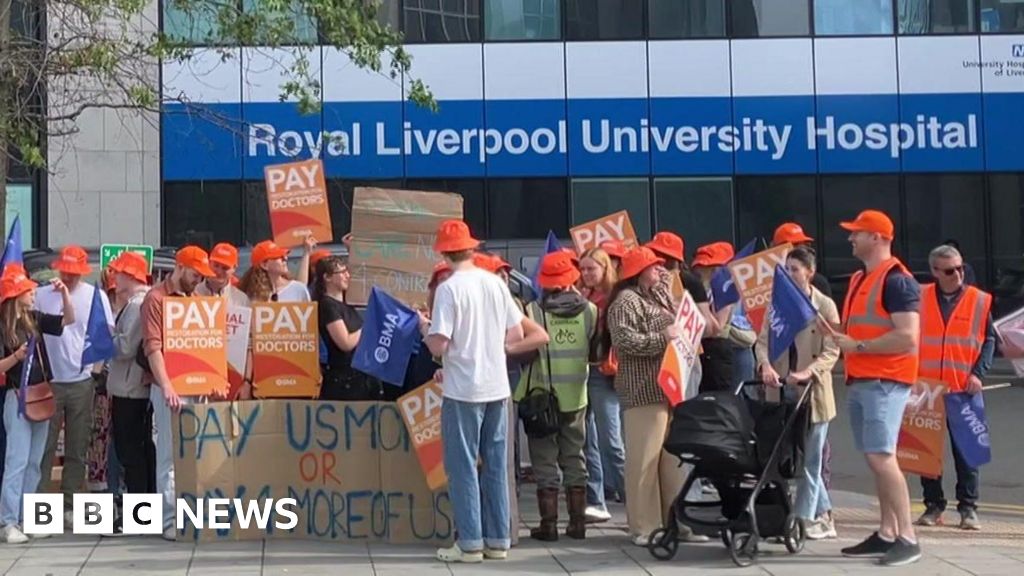News

The regional medical director of the NHS in north-west England says they want to “make sure that we cancel as few appointments as possible” as the current doctors’ strike continues into its fourth day.
The five-day walkout by resident doctors – previously known as junior doctors – began on Friday and is due to end on Wednesday morning after the government and doctors’ union British Medical Association (BMA) failed to agree on wages last week.
It is the 12th strike by doctors since 2023 in the long-running pay dispute.
Dr Michael Gregory, regional medical director of the NHS, said previous strikes had a “detrimental effect particularly with outpatient appointments and electric procedures”.
“Certainly this time around NHS England have made a definitive push on making sure that as many operations and outpatient appointments go ahead as possible,” he told North West Tonight.
“We still have urgent emergency care and we do have urgent cancer and other priority surgeries going ahead.”
He added that they had “consultant cover in place where we can on most days to cover services” but “clearly there’s going to be services stretched”.
The NHS says it wants to keep operating non-urgent services during this latest walkout as they advised patients to attend appointments unless contacted to reschedule.
GP surgeries remain open and, for urgent or non-life threatening issues, 111 continues to be the best option and for emergency care A&E or 999.
Speaking near a Liverpool hospital picket line, members of the public shared a variety of responses with one woman, who previously trained as a nurse, saying she believed the medics are “amazing but I think they’re also on a good wage”.
Another man said: “I guess the doctors need to be paid. They do work hard, they do work long hours.”
Another woman added: “I disagree with them being on strike because they had a pay rise last year and most people are on a minimum wage.”
Resident doctors comprise around half of all doctors and can earn a basic salary of £38,831 during their first foundation year after completing their medical degree.
This rises to £44,439 in the second year and salaries can increase to about £70,000 after eight years.
‘Pay restoration’
During 2023-24, over two years, they received a 22% pay rise. From this August, they will get an extra 5.4% pay increase.
However the BMA says resident doctors’ pay will be 20% lower in real terms than it was in 2008, even with the increase this summer.
They also argue that resident doctors may have more student debt due to the five or six-year duration of their degrees.
BMA representative Dr Mohammed Kamora, who was on the Liverpool picket line, described the latest pay increases as having “started a journey towards pay restoration” and that those on strike were “asking for parity for what we had in 2008”.
“That is the key to retaining our best and brightest,” he added.
Health Secretary Wes Streeting has said resident doctors have received the largest pay rises of any public sector employees over the past three years.
The government said it would not offer any further increases and Prime Minister Sir Keir Starmer has said the walkouts threatened “to turn back the clock on progress we have made in rebuilding the NHS over the last year”.

